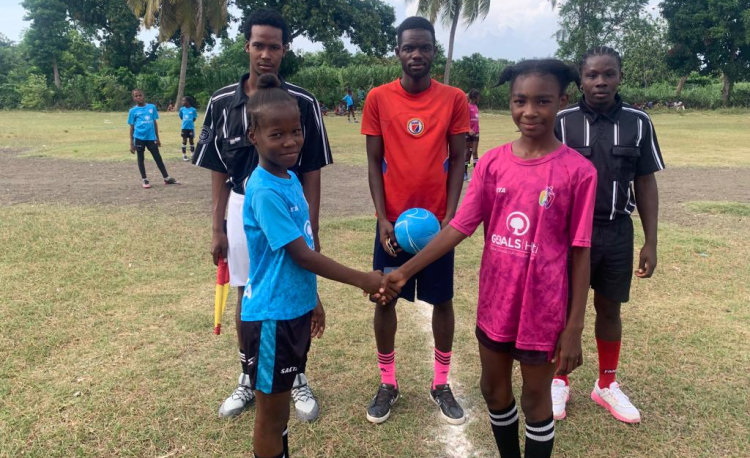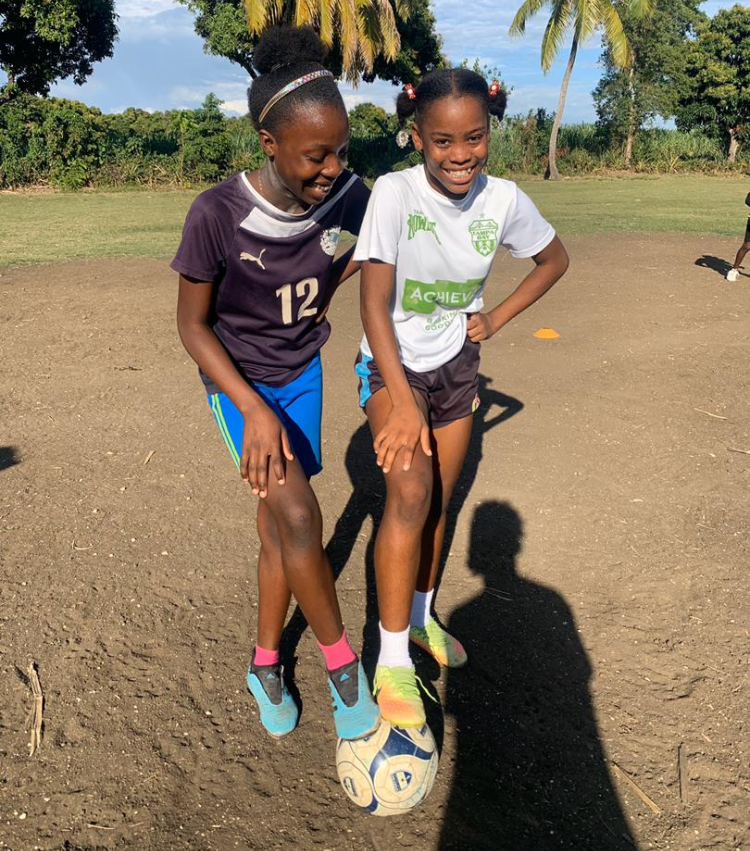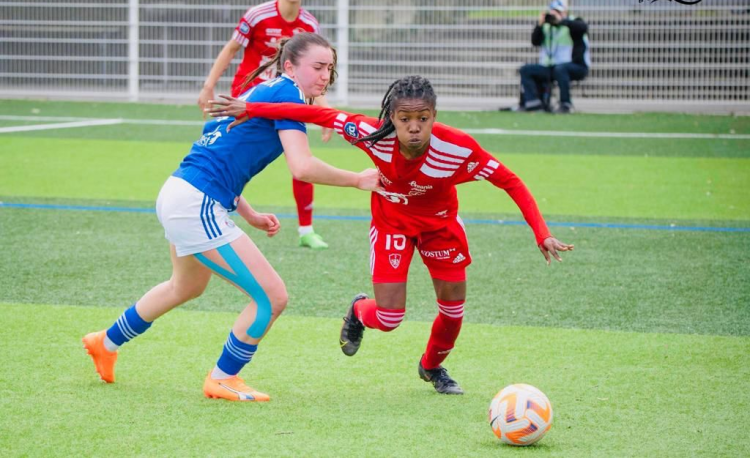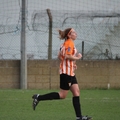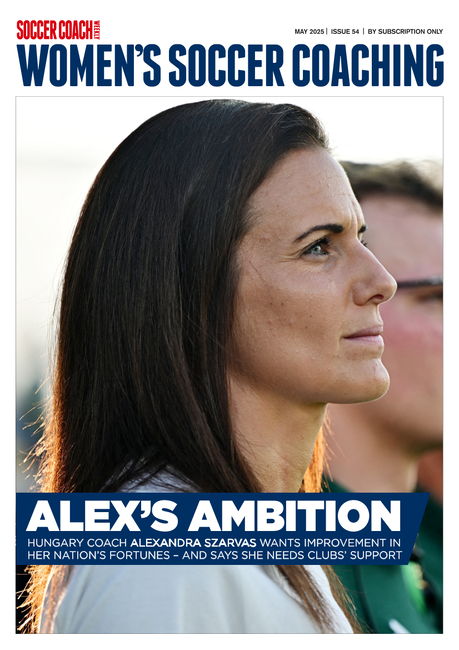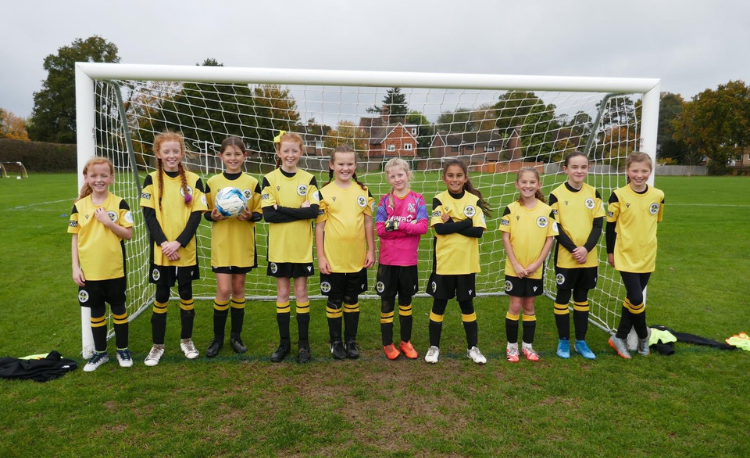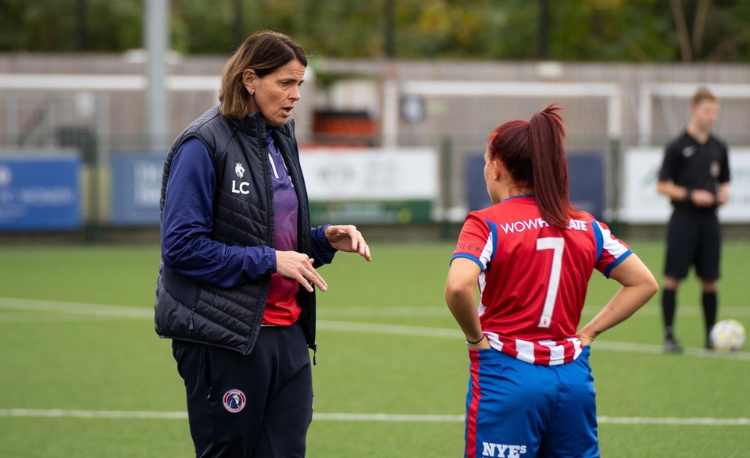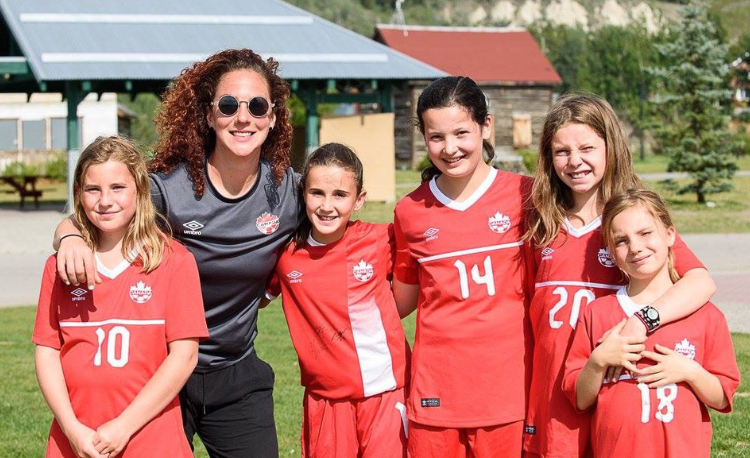You are viewing
1 of your 3 free articles
Haiti girls achieving their squad 'GOALS'
A project borne from disaster has inspired 1,500 youngsters and helped develop internationals. Hannah Duncan talks to Kathy McAllister to learn more.
In 2010, Haiti was hit by a catastrophic earthquake. More than 100,000 people were killed and millions more were affected.
Soccer was far from anyone’s mind. And yet, 13 years later, Haiti competed at the Women’s World Cup for the very first time.
Part of the success can be attributed to GOALS Haiti, a programme borne out of the earthquake recovery, and is focused on equal opportunities in both soccer and society.
Hannah Duncan spoke to its executive director, Kathy McAllister, to find out more.
WSC: Tell us more about GOALS Haiti...
KM: GOALS Haiti was founded by Kona Shen after the earthquake in 2010.
She was travelling in remote rural Haiti and witnessed kids trying to play soccer. They lacked shoes and balls but were playing anyway, barefoot and kicking an old can.
The spark for GOALS Haiti was born when Kona saw that their love of the game could be used as a tool for youth and social development.
WSC: Who is it aimed at and how have you gone about reaching these people?
KM: GOALS Haiti focuses on rural communities, where no other non-profit, private or government services are available.
These communities lack the basic infrastructure of electricity, potable water and roads. The needs are severe – 80% of our players’ parents are unemployed, nearly a third of GOALS youth cannot afford to attend school and 10% still live in post-natural disaster transitional structures.
Violence is an ever-present risk and gender bias and inequality is high. Malnutrition, malaria, dengue, dysentery and cholera are an ongoing risk of daily life.
In terms of health, education, and opportunities, Haiti is one of the most difficult places in the world to grow up.
Our programme is open to girls and boys, aged 7 to 18. We have a ‘boys play if girls play’ rule, meaning that, for a community to have a boys’ team, they have to commit to an equal number of girls.
This rule has been successful in recruiting girls to join, because the boys invite their sisters, female cousins and neighbours to play.
Each of our fields has local coaches and they play a big role in recruiting kids from their area. We now have 12 teams – four teams in three different communities – with equal number of girls’ and boys’ teams.
WSC: What does the programme involve?
MB: Our program meets daily and involves soccer practice and ’purposeful play’ games, which teach about gender equality, conflict resolution and disease prevention.
We also have friendly matches with other teams and host two annual tournaments.
Kids playing on our teams also commit to doing community service projects as a team, such as beach clean-up, community gardening and tree planting.
Throughout the year we offer education on disease prevention, sexual health, nutrition and hygiene.
Our adolescent teams also participate in gender-based violence awareness and prevention training. We are equipping female participants with the tools and information for their safety and wellbeing.
We ensure female participants have the gear they need to play, which includes distributing sports bras and period underwear. Having the right kit for female participants reduces the barriers to play.
WSC: How many people have been involved so far and what has the feedback been like?
KM: A total of 1,500 females have been involved. The feedback has been positive and 99% reported that the program has increased their confidence and their knowledge of self-care.
WSC: What benefits has this given them and what have they since gone on to do?
KM: The benefits include increased communication skills, knowledge of health and self-care, leadership skills, equal rights, and climate action awareness.
Many of our participants have gone on to start their own business or be recruited to play for the Haiti national teams. Eleven alumni are now part of GOALS Haiti staff as coaches, literacy teachers and tutors.
WSC: What is the status of female soccer in your community?
KM: Soccer is the most popular sport in Haiti. But before GOALS Haiti started, there were not a lot of opportunities for girls to play, especially in the remote rural communities where we work.
We currently have 175 girls enrolled in our roster, which includes U12s and U18s teams.
The landscape for girls’ and women’s soccer has changed since our inception. We are not a soccer academy; we use soccer as a means for social development.
However, we have had success, with 46 girls from our programme recruited to the Haitian national team, compared to six boys.
Three players in the Haitian team at the Women’s World Cup were former GOALS alumna. The current Haitian youth team has seven players who started playing soccer with GOALS Haiti.
We want girls included in all aspects of the game. We started an assistant-coach training program, where girls can gain experience and pathways to leadership.
GOALS started with one female coach in 2010; now we have eight. We’re also starting a female referee training opportunity.
WSC: Why is it so important for your communities to have opportunities for females to get involved in soccer?
KM: It is so important because it is empowering and shifting long-held beliefs of what is possible for girls.
Through playing soccer, girls grow up more confident and self-assured. They gain skills that last a lifetime – communication, teamwork and dedication, to name a few.
Because our programmes have been running for 14 years, we have seen a whole generation of kids grow up in our program.
We hear from parents and community members on the impact of this. One example is the teenage pregnancy rate reduced from 7%, pre-GOALS Haiti, to under 1% after the programme was set up.
WSC: What are the future plans for the programme?
KM: We want to continue to work in partnership with the local communities and deepen the impact of the programs through curriculum development and evaluation learning.
Haiti is currently facing unprecedented crises due to insecurity and gang violence. Because of this, many public schools are closed, so our programmes are the only safe outlet for kids and youth in the areas where we work.
Investing in the youth of today is the way to a better future tomorrow. We will continue to push the boundaries of what soccer and sport for development can do as we strive for a more equitable and healthier society.
CASE STUDY
Related Files
“I started playing football when I was young, with my brothers and cousins.
"In my neighborhood I was the only girl who played football and I had to hide because my grandmother did not want me to play.
"She thought it was a game just for the boys and she did not want me to get hurt.
"We would play around the corner from my house and if we heard my grandmother coming, I would hide so she didn’t see me playing.
"My brother was the one that introduced me to GOALS Haiti.
"He said they had a girls’ team so I went to the field and they gave me a pair of cleats.
"I was drawn to it because I liked the atmosphere of it. We were a group, and the team became my family.
"It showed me what being a part of a collective and family meant.
"To this day I still stay in contact with my GOALS Haiti team.”
BETINA petit-frere, HAITI women’s national team & goals alumna
Newsletter Sign Up
Newsletter Sign Up
Discover the simple way to become a more effective, more successful soccer coach
In a recent survey 89% of subscribers said Women's Soccer Coaching makes them more confident, 91% said Women's Soccer Coaching makes them a more effective coach and 93% said Women's Soccer Coaching makes them more inspired.
*includes 3 coaching manuals
Get Inspired
All the latest techniques and approaches
Women's Soccer Coaching offers proven and easy to use soccer drills, coaching sessions, practice plans, small-sided games, warm-ups, training tips and advice.
We've been at the cutting edge of soccer coaching since we launched Soccer Coach Weekly in 2007, creating resources for the grassroots youth coach, following best practice from around the world and insights from the professional game.
